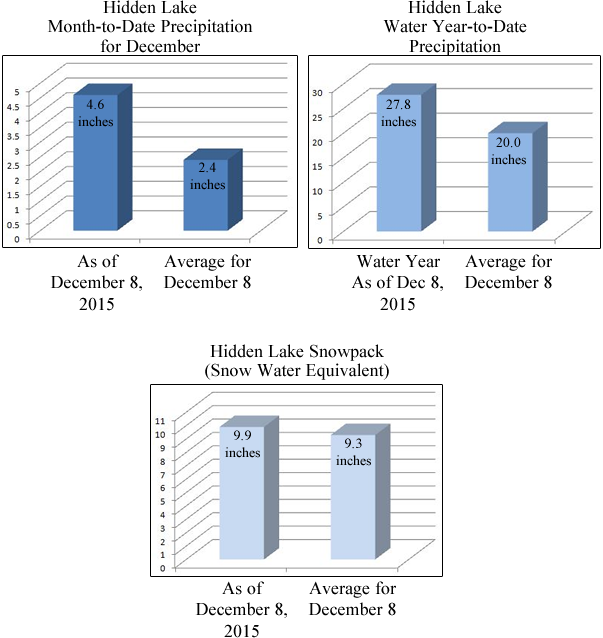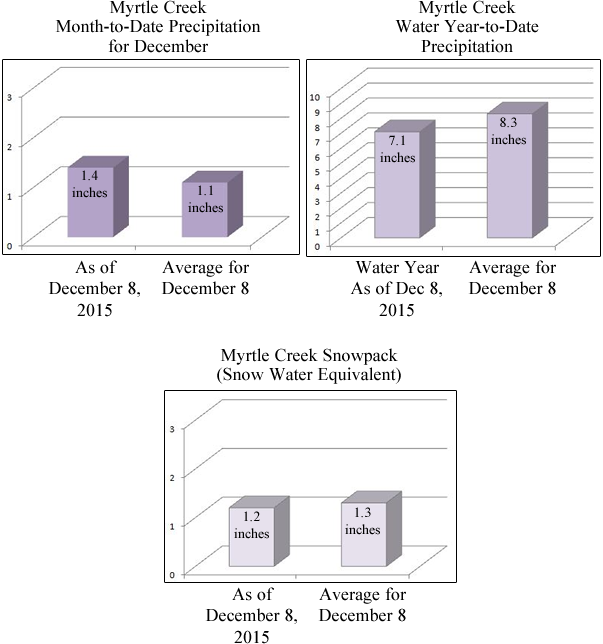The water year is measured each year beginning October 1, running through September 30.
Currently, we are about two months into the new 2016 water year. Experts have looked at scientific data and projections to try to make educated predictions on the snowpack and precipitation for the 2016 water year. A big factor that plays a part in the analysis is El Niño, which this year is predicted to be one of the stronger El Niños on record.
El Niño affects different parts of the United States in different ways. In the Pacific Northwest, it seems to bring warmer than average temperatures, and below average precipitation. This has led to predictions that we might possibly have a warmer and drier winter again this year.
Whether those predictions will be borne out or not in the long run, the snowpack so far in Boundary County is OK for now.
Instruments located at Boundary County's Hidden Lake and at Myrtle Creek measure precipitation and the snowpack in those areas. At this point, early in the water year, data from those instruments are showing good numbers for both our current snowpack and the accumulated precipitation in Boundary County--so far.
At Hidden Lake, located in the west side mountains of the north west part of Boundary County, precipitation for our current month of December, as of readings taken just this morning, is 4.6 inches, which is 192% of the average for the first eight days of December. For the 2016 water year since October 1, Hidden Lake precipitation totals 27.8 inches, which is 139% of the year-to-date average number for December 8.
At the other data collection site at Myrtle Creek, located just west of the Kootenai National Wildlife Refuge, December precipitation stands at 1.4 inches as of today, which is 127% of the average month-to-date amount for December 8.
Water year-to-date precipitation at Myrtle Creek is 7.1 inches, which is 86% of our usual year-to-date average.
This precipitation has led to good snowpacks so far in the water year. At Hidden Lake, snowpack as of today is 9.9 inches (measured as Snow Water Equivalent), which is 106% of the average for December 8. Myrtle Creek snowpack today is 1.2 inches, which is 92% of the usual December 8 average.
Interestingly, with recent rainfalls, these numbers have climbed steadily. For example, the Hidden Lake instrument site showed precipitation climbed 1.1 inch from yesterday, December 7, through today, December 8, with Myrtle Creek adding 0.2 inch precipitation over the past 24 hours.
For those of us who like to see our numbers presented in convenient easy-to-follow graphical format, our NewsBF graphics staff has prepared the following pictorial representations of the above information:

. . . . . . . . . . . . . . . . . . . . . .

Temperatures are predicted to remain somewhat high for the next few days, into the mid 40s. These temperatures could potentially adversely affect our mountain snowpack.
Click here for weather alert story: possible damaging winds and heavy rainfall today.